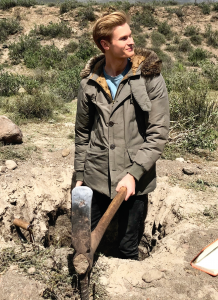Faculty
 |
Marc Hesse [RG] [Kudos]
Marc is a computational geoscientists interested in multiphase geosystems and geological porous media. Marc has an BSc in Geology from the University of Edinburg, a MS in Oceanography from the MIT-WHOI Joint Program, a MPhil in Fluid Flow from Cambridge University, and a PhD in Petroleum Engineering from Stanford University. He was a postdoctoral researcher in tectonophysics at Brown University. In the fall 2009 Marc joined the Jackson School of Geosciences as an assistant professor. |
Postdoctoral scholars
Visitors
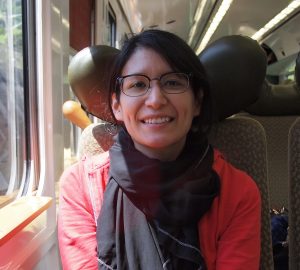 |
Amy De Luna B.Sc., Mathematics, The University of Texas at Austin, 2019 Amy is a recent graduate from UT Austin with a BS in Mathematics and a certificate in Computational Science and Engineering with an interest in applied mathematics, numerical methods, and planetary science. I am working with Dr. Hesse to update a model simulation of an impact-induced cryomagma chamber on the dwarf planet Ceres. |
Graduate Students (advisor)
Currently all my graduate students are co-advised.
Graduate Students (co-advisor)
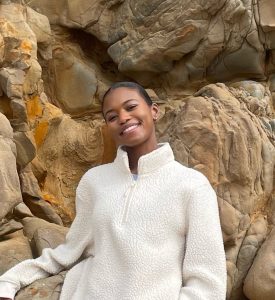 |
Soraya Alfred (PhD Candidate GEO) Soraya is interested in the evolution of the hydrothermal system at Chicxulub Crater. She studies the mechanisms that contributed to its prolonged activity over millions of years which subsequently lead to the development of a thriving microbial community. She explores these topics via the use of numerical models, the results from which can provide insights into the evolution of life on early Earth and other planetary bodies. Co-advisor: Sean Gulick Papers: coming soon |
 |
Eric Hiatt (PhD Candidate GEO) Eric is interested in the dynamic coupling between crater formation and hydrosphere on early Noachian Mars. He is specifically interested in the potential for post impact hydrothermal system communication via groundwater flow and the implications for astrobiology. He is focused on applied mathematics, numerical simulations, remote sensing, geochronology, and Earth analogues as tools for understanding Mars’ past. Eric is also a full-time dad to daughters Madilyn and Adrianna (AJ), who he is forever grateful for their patience and understanding. Co-advisors: Sean Gulick, Tim Goudge Papers: Hiatt et al., 2023 |
Undergraduate Students
Former Students/Postdocs/Visitors
 |
Jialong Ren (PhD Candidate GEO) Jialong is interested mechanics and numerical simulation of heat and mass transport in complex construction and complex physical process. He focused on pool boiling simulation with lattice Boltzmann method. Now, he’s working on developing models for the hydrothermal evolution of primordial planetesimals. Papers: Lukas, Ren et al. (2020, 2022), Ren et al. (2022, 2024a, 2024b), |
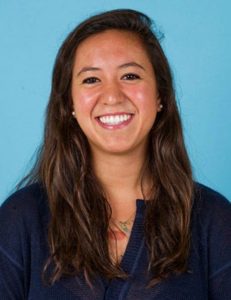 |
Molly Zebker (PhD Candidate GEO) Molly is a PhD student co-advised by Ann Chen (ASE) and Marc Hesse (JSG) interested in InSAR studies of crustal deformation. She is focused on using InSAR as a tool to see processes occurring beneath the Earth’s surface and develop applications that help us understand the Earth and manage its resources. Co-advisor: Ann Chen Papers: Zebker et al. 2023 |
 |
Afzal (Mohammad) Shadab (PhD Candidate CSEM) [RG] B.Tech., Mechanical Engineering, Aligarh Muslim University, 2016 M.Phil., Mechanical Engineering, The Hong Kong University of Science and Technology, 2018 PhD, Computational Science, Engineering, and Mathematics, 2024 Afzal is interested in fluid dynamics and numerical scheme development along with its application to investigate and solve the real-world problems. At GPMG, he’s working on deriving the continuum models for multiphase flows in soft ductile rocks and subsequently developing numerical methods which have broad applications in solid earth and planetary sciences. |
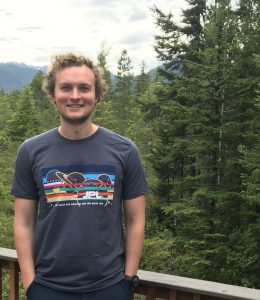 |
Evan Carnahan (MS Candidate CSEM) Evan is broadly interested in computational methods for multiphase flow. As well as methods for data integration and uncertainty quantification in inverse models. Most of my application areas have centered around the cryosphere, but I am also interested in ocean and atmosphere dynamics. Co-advisor: Ginny Catania |
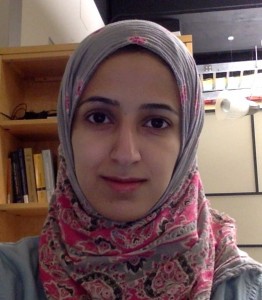 |
Amal Alghamdi (PhD Candidate CSEM) B.Sc. Computer Science, King Abdulaziz University, 2009 I am a PhD student in the Institute for Computational Engineering and Sciences (ICES). I’m interested in numerical methods for solving PDEs, Bayesian PDE-constrained inverse problems and high performance computing. I’m supervised by Prof. Omar Ghattas in the Center for Computational GeoSciences and Optimization and co-advised by Prof. Marc Hesse. I’m working in the area of Bayesian inversion for subsurface properties governed by poroelastic models. Amal has moved to Copenhagen for a postdoc in Applied Mathematics. Co-advisors: Omar Ghattas, Ann Chen |
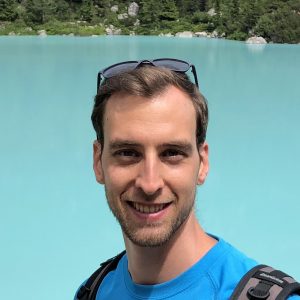 |
Simone Puel (PhD Candidate Geological Sciences) B.Sc. Geological Sciences and Technology, University of Milano-Bicocca 2014 Simone is supervised by Dr. Thorsten W. Becker (JGS-UTIG) and co-advised by Dr. Marc Hesse (JSG). He is interested in understanding the role of fluids in subduction zone systems and their contribution to crustal deformation of megathrust earthquakes. |
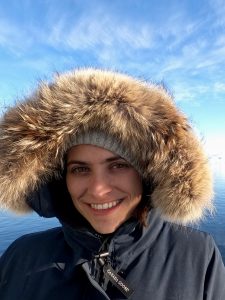 |
Natalie Wolfenbarger (PhD Candidate GEO) Natalie Wolfenbarger began her geophysics doctoral degree at the Jackson School of Geosciences in Fall 2017. An aerospace engineering graduate, her research has evolved from characterizing spacecraft performance to examining how data acquired by spacecraft can be used to better understand Earth and other ocean worlds—particularly Jupiter’s ice-covered moon, Europa. As a member of UTIG’s Polar and Planetary research group, Natalie is currently an affiliate member of the Europa Clipper science team supporting verification and validation of the REASON instrument, an ice-penetrating radar designed to peer through Europa’s enigmatic ice shell. Her research aims to understand how we can use radar studies of Earth ice to help interpret future data collected by REASON to investigate Europa’s habitability. Her studies of analog environments for Europa has led her to both the Arctic and Antarctica, where she worked with a team of researchers to conduct aerogeophysical surveys of sites including Devon Ice Cap and Thwaites Glacier. Papers: Wolfenbarger et al. (2021) |
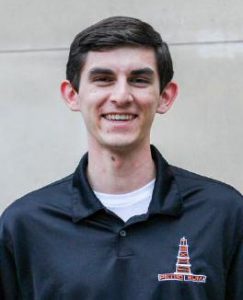 |
Alex Gigliotti (PhD Candidate PGE) BSc. Petroleum Engineering, The University of Texas at Austin, 2019 MS Petroleum Engineering, The University of Texas at Austin, 2022 In May 2019, I graduated from UT Austin with a BS in Petroleum Engineering, focused primarily in reservoir engineering, and a certificate in Computational Science and Engineering, focused in applied mathematics, numerical simulation, and high performance computing. I am interested in interdisciplinary science and engineering, the physics of fundamental processes, along with computational and applied mathematics. |
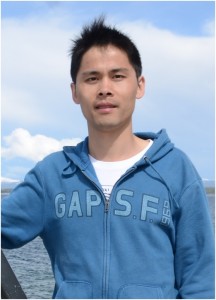 |
Baole Wen [RG] Ph.D. Applied Mathematics, University of New Hampshire (2015) Baole is a new ICES Postdoctoral Fellow. He is interested in turbulence, mathematical modeling and dynamical systems theory. His PhD research was focused on understanding the underlying flow and transport mechanisms governing the spatiotemporally-chaotic system of porous medium convection at large values of the Rayleigh number. This investigation employed a complement of direct numerical simulations, secondary stability and dynamical systems theory, and variational analysis. Now, he is working with Dr. Hesse and Dr. Ghattas on developing an inversion algorithm to identify the source of CO2 at Bravo dome. Papers: Shi et al. (2017), Wen et al. (2018a, 2018b, 2021), Liang et al. (2018), |
 |
Kimberly McCormack (PhD Candidate GEO) [RG] B.S. Geophysics & Marine Sciences, University of South Carolina (2013) Ph.D. Geological Sciences, University of Texas at Austin (2019) Kimmy is interested in how fluid injection induces seismicity on pre-existing faults. She is developing a numerical model to characterize how injected fluid propagates through a target formation and interacts with existing faults and under what conditions this interaction results in slip on a fault. After completing her PhD Kimmy joined the National Geospatial-Intelligence Agency. |
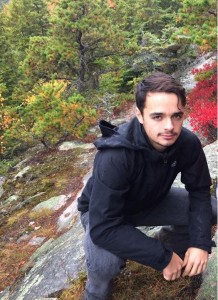 |
Evan Ramos (PhD candidate) [RG] B.A. Geophysics and Planetary Sciences, Boston University (2015) M.S. Geological Sciences, The University of Texas at Austin (2018) Co-advised by Jaime Barnes, Evan is Master’s candidate interested in constraining fluid flow as a result of contact metamorphism. Through stable isotope geochemistry and geochronology, he plans to develop a model to describe and characterize the mechanisms and processes that formed a skarn system in the Sierra Nevada Batholith. After completing his MS Evan continued his PhD under the supervision of Jamie Barnes and Dan Breecker. Papers: Ramos et al. (2018) |
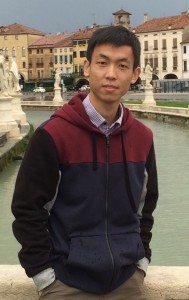 |
Li Zhang [RG] B.S. Engineering Mechanics, Tsinghua University (2012) PhD Engineering Mechanics, Tsinghua University (2018) Li is interested in reactive transport and electrokinetic phenomena in porous media. I am developing numerical tools, basically with lattice Boltzmann method, to simulate the pore-scale processes and couple them with large scale method to understand the effects of pore-scale heterogeneity. Papers: Zhang et al. (2017, 2018a, 2018b), Wen et al. (2018a) |
 |
Esben Pedersen B.Sc. Geological Sciences 2018 Esben works with Toti Larson and graduate students Daria Ahkbari on bench-top two-phase flow experiments. He is trying to understand the effect of gravity in two-phase flow and the partitioning of noble gases during two-phase flow. |
 |
Daria Akhbari [RG] B.Sc. Civil Engineering, Sharif University of Technology (2006) M.Sc. Civil & Environmental Engineering, Colorado State University (2013) Ph.D. Geological Sciences, The University of Texas at Austin (2018) Daria is a new member in the Geological porous media group.He is interested in the convective dissolution of carbon dioxide in the geological carbon dioxide storage fields. Daria will estimate the long-term convective CO2 dissolution rate at the Bravo Dome CO2 field, by conducting the analogue laboratory experiments, developing numerical models, and testing the developed models against the laboratory derived data. Daria now works at Geosyntec in L.A.. |
 |
Colin McNeece [RG] B.A. Geology, University of California, Berkeley (2010) M.A. Earth and Planetary Science, University of California, Berkeley (2011) Ph.D. Geological Sciences, The University of Texas at Austin (2018) Colin is interested in reactive transport modeling, a field that sits on the interface of fluid mechanics and geochemistry. His work couples theory and experiments to understand fundamental controls on transport behavior in natural settings. Colin is also interested in his dog, rock climbing, plants, baking, powerlifting, and learning Danish. Colin now works for Enthought in Austin. |
 |
Jeonghun (John) Lee [RG] Ph.D. Mathematics, University of Minnesota (2012) Postdocs at Aalto University and Univ. of Oslo John is interested in numerical mathematics and computational mechanics problems (numerical analysis, scientific computing, Bayesian inversion, and PDE constrained optimization). He is working with Dr. Ghattas and Dr. Hesse on optimal experimental design under uncertainty with applications to induced seismicity. |
 |
Yu Liang B.Sc. Petroleum Engineering, University of Wyoming (2012) PhD Petroleum Engineering, The University of Texas at Austin (2018) Yu (Alex) is currently a MS student in Petroleum and Geosystems Engineering advised by Prof. DiCarlo and working on a joint NSF project with Prof. Hesse on the dynamics of convective dissolution of CO2 in natural CO2 reservoirs. Alex now works as a reservoir engineer for HilCorp. Co-advisor: David DiCarlo Papers: Liang et al. (2018) |
 |
Jake Jordan [RG] A.B. Geophysics, University of Chicago (2011) Ph.D. Geological Sciences, The University of Texas at Austin (2018) Jake studies the partial melting of the Earth (and other rocky planets). The partial melting of planetary interiors can lead to the onset of plate tectonics, volcanism, the chemical differences observed in rocks throughout worlds and may play an integral role in the evolution of habitable planets. Oh…and he spends his nights and weekends pretending to be an artist. Papers: Jordan and Hesse (2015), Sathaye et al. (2016a), Jordan et al. (2018), Hesse et al. (202X) |
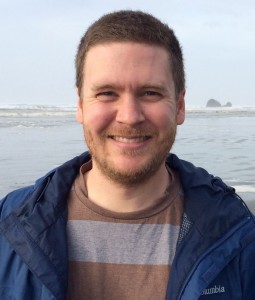 |
Nicholas Dygert [RG] Ph.D. Geological Sciences, Brown University (2014) Nick is a JSG Postdoctoral Fellow, his research focuses on understanding the physical and chemical evolution of the terrestrial and lunar mantles using experiments, numerical models, and field studies. Subjects of active research include characterization of the thermal history of the upper mantle and the geological processes that affect it, and trace element geochemical investigations of dynamic processes in planetary interiors. Nick is now Assistant professor in the Department of Earth and Planetary Sciences at the University of Tennessee Knoxville. Papers: Dygert et al. (2018) |
 |
Soheil Ghanbarzadeh [RG] B.Sc. Mechanical Engineering, Sharif University of Technology (2008) M.Sc. Mechanical Engineering, Sharif University of Technology (2010) Ph.D. Petroleum Engineering, The University of Texas at Austin (2017) Soheil is a PhD student in Petroleum and Geosystems Engineering and jointly advised with Prof. Prodanovic. Soheil is studying texturally equilibrated pore-shapes in rock-salt and their effect on petrophysical properties. Soheil in now a data scientist with BP in Houston. Co-advisor: Masha Prodanovic |
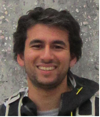 |
Kiran Sathaye (PhD Candidate GEO) [RG] PhD Geological Sciences, University of Texas at Austin (2016) B.A. Geophysics, University of California at Berkeley (2010) B.S. Environmental Sciences, University of California at Berkeley (2010) I am a PhD candidate studying the Bravo Dome carbon dioxide reservoir near the Texas-Oklahoma-New Mexico border. My work involves incorporation of stable and radioactive isotope geochemistry, reservoir engineering and multiphase flow, and petrophysics and geostatistics. I am interested in incorporation of data and models from these varying disciplines to better understand subsurface fluid flow. From 2016-2017 Kiran is now working on the sunny beaches of Los Angeles as a Data Engineer at Snapchat. Since 2018 Kiran is working for Tala. |
 |
Ram Sanchez BSc Geosystems Engineering, The University of Texas at Austin (2014)Ram works with graduate students Kiran Sathaye and Alex Yu on characterizing the Bravo Dome natural carbon dioxide field and on bench-top analog experiments of convective CO2 dissolution. |
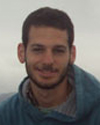 |
Abraham Taicher PhD Computational Science, Engineering and Math, The University of Texas at Austin (2014) B.Sc. Physics, Rice University (2007) Avi is a CSEM student with a strong background in numerical and applied mathematics. He is interested in developing Mixed Finite Element methods to problems in porous media and fluid mechanics. He focuses on studying the Darcy-Stokes equations that govern convection and partial melting in planetary interiors. Avi now works as a computational mathematician at Applied Underwriters, an insurance company. Co-advisor: Todd Arbogast Papers (with Hesse): Arbogast, Hesse, Taicher (2017) |
 |
Ashwin Venkatraman [RG] Ph.D. Petroleum and Geosystems Engineering, University of Texas at Austin (2014) B.Sc. Chemical Engineering, Indian Institute of Technology Bombay (2004) Ashwin was a PhD student in Petroleum and Geosystems Engineering advised by Prof. Lake and Prof. Johns (now at Penn State). After taking the GEO391 Reactive Transport in Porous Media in Spring 2010 Ashwin started a side project with Marc that developed the hyperbolic theory for heterogeneous ternary ion-exchange and successfully validated it against published experimental and field data. Ashwin is currently a postdoctoral researcher at the Institute for Computational Engineering and Science with Prof. Mary Wheeler. Papers (with Hesse): Venkatraman et al. (2014) |
 |
Kyung Won Chang [RG] PhD Geosciences, The University of Texas at Austin (2013) M.S. Petroleum Engineering, The University of Texas at Austin (2007) B.Sc. Geotechnical Engineering, Seoul National University (2005) Kyung Won (K-Won) worked on the carbon storage in geologically heterogeneous formations. He will continue his research of theoretical, numerical and experimental studies of multiphase flow and solute transport in deformable porous media. Kyung-won was a postdoctoral scholar at the Stanford Center for Induced and Triggered Seismicity working with Prof. Paul Segall. Following his postdoc K-won worked as an applications engineer for COMSOL Multiphysics in Los Angeles for two years. Recently, he has joined Sandia National Laboratories. Papers: Chang et al. (2013), Woods et al. (2015), Wen et al. (2018) |
 |
Nicolas Huerta [RG] Ph.D. Geosciences, The University of Texas at Austin (2013) M.S. Petroleum Engineering, The University of Texas at Austin (2009) M.S. Geology, University of California at Davis (2007) B.S. Geology, University of California at Davis (2003) Nicolas completed his Ph.D. in fall 2013 and initially worked as a research scientist at the U.S. Department of Energy, National Energy Technology Laboratory in Albany Oregon. In 2019 Nick moved to Pacific Northwest National Laboratory as a research scientist in the Subsurface Science and Technology Group. He studies problems related to ensuring energy security and independence for the U.S. Some of his specific research interests are:
Papers: Huerta et al. (2012), Huerta et al. (2015) |
 |
Quin Wenning B.Sc. Geology, The University of Texas at Austin (2012) Quinn worked with Nic Huerta on characterizing flow paths in fractured well bores. Quinn is currently pursuing a Masters in Applied Geoscience at the Swiss Federal Institute of Technology in Zurich, ETHZ [LinkedIn]. |
 |
Michael Tso [RG] BSc Geosystems Engineering and Hydrology (2012) Michael worked with Marc Hesse on the Bravo Dome natural carbon dioxide field and was instrumental in getting it of the ground. After graduating from UT Austin Michael obtained a M.S. in Hydrology at the University of Arizona and is currently pursuing a PhD at the University of Lancaster in the U.K. (Michael’s website). |
 |
Jennifer Cessna MS Geosciences (2011) B.Sc. Geology and Mathematics, North Carolina State University (2009)Jennifer worked on unstable reaction fronts in porous media. Jennifer has moved on to a career in K12 teaching. |



